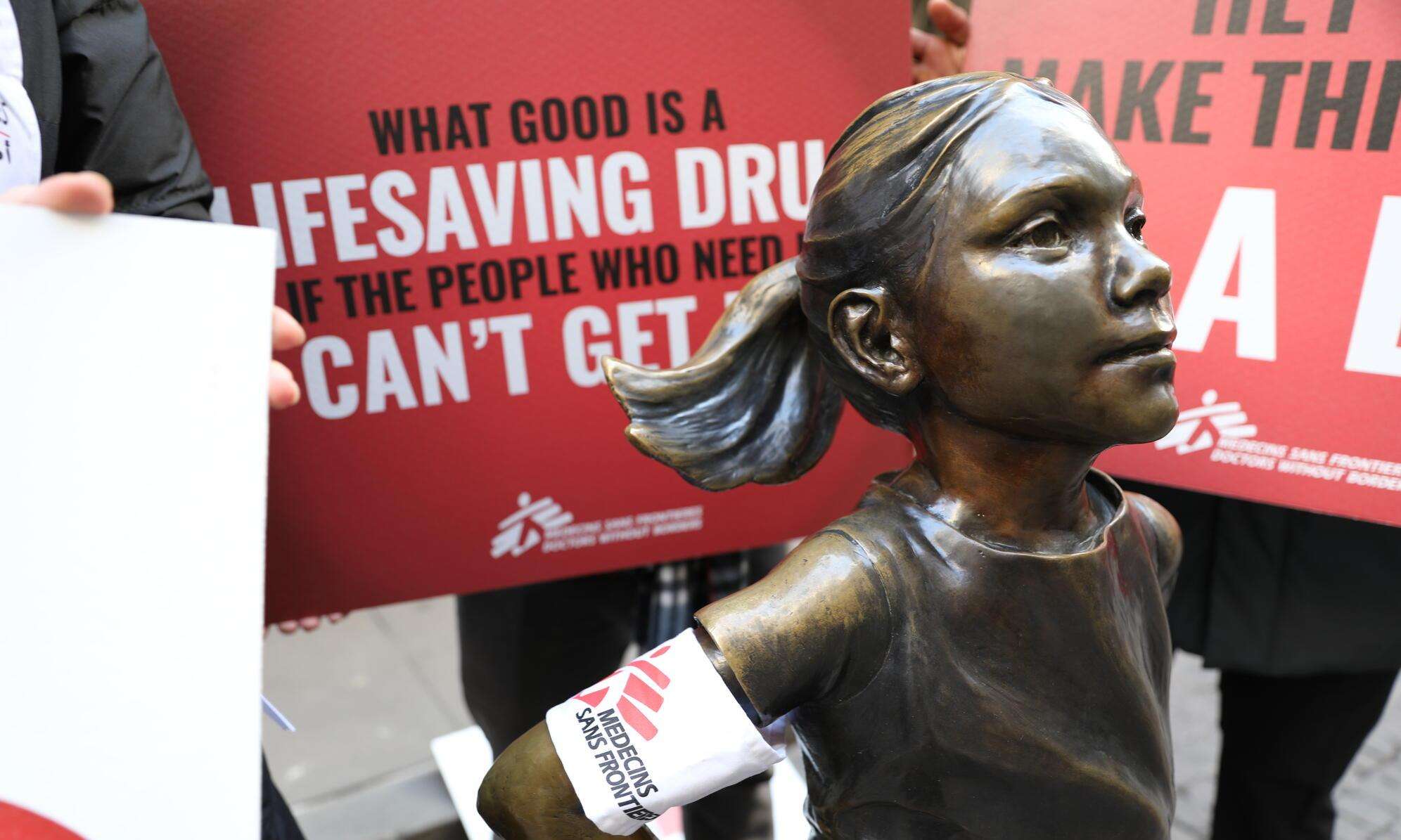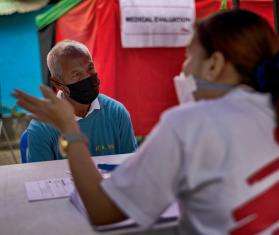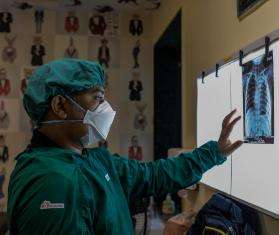NEW YORK, SEPTEMBER 30, 2023—After years of advocacy to increase access to the lifesaving tuberculosis (TB) drug bedaquiline, Doctors Without Borders/Médecins Sans Frontières (MSF) welcomes Johnson & Johnson’s (J&J) announcement to drop its secondary patents on the medicine. This decision means additional drugmakers will be allowed to make more affordable generic versions of the drug for people in low- and middle-income countries all over the world.
TB remains the top infectious disease killer, with approximately 10.6 million new cases and 1.6 million deaths in 2021, partly because pharmaceutical monopolies have historically prevented people from accessing treatment. One way pharmaceutical companies have maintained their monopolies on drugs like bedaquiline is through patent evergreening—extending the patent of an existing medicine by modifying it slightly.
Bedaquiline is a shorter, better-tolerated, and more effective treatment option and what the World Health Organization now recommends for treatment of drug-resistant TB (DR-TB). The current recommended treatment containing bedaquiline is all-oral, six months long, and can cure up to 89 percent of people with DR-TB. This is a vast improvement over the older treatments that had to be administered for 18 months, included daily painful injections, and often caused severe side effects.
J&J's announcement comes after the pharmaceutical corporation lost its attempt to extend its monopoly in India. Additionally, national TB treatment programs from Ukraine and Belarus requested J&J drop its secondary patents in their countries and others greatly affected by TB. A recent investigation by the South African Competition Commission also likely helped pressure J&J into making this decision.
Christophe Perrin, TB advocacy pharmacist with MSF's Access Campaign, said today:
“We welcome J&J's announcement, which will finally pave the way for unfettered access to affordable generic versions of bedaquiline for all people living with DR-TB who need the drug in low- and middle-income countries.
“This huge win is a testament to the persistent efforts of TB activists, civil society, and countries prioritizing public health over corporations’ interests.
“The last 10 weeks have marked a sea change in TB; we have seen J&J back down on the price and its patents for bedaquiline, we have seen Cepheid and Danaher finally—after over 10 years of pressure—reduce the price of the most important TB test by 20 percent, and we’ve had a declaration by governments at the United Nations pledging to scale up access to these new and improved TB tools for people who need them.
“We now want to see Japanese pharmaceutical corporation Otsuka follow suit and publicly announce that they will not enforce any secondary patents in low- and middle-income countries for the other critical newer TB drug delamanid, especially as the corporation’s primary patent is set to expire in 10 days in India and other countries. Delamanid is another key DR-TB drug used in combination with bedaquiline and is particularly important for children.
"We need all newer TB innovations to be as affordable as possible so governments can scale up prevention, testing, and treatment to beat back this curable disease that continues to kill 1.6 million people every year. People with TB cannot afford to wait any longer.”



